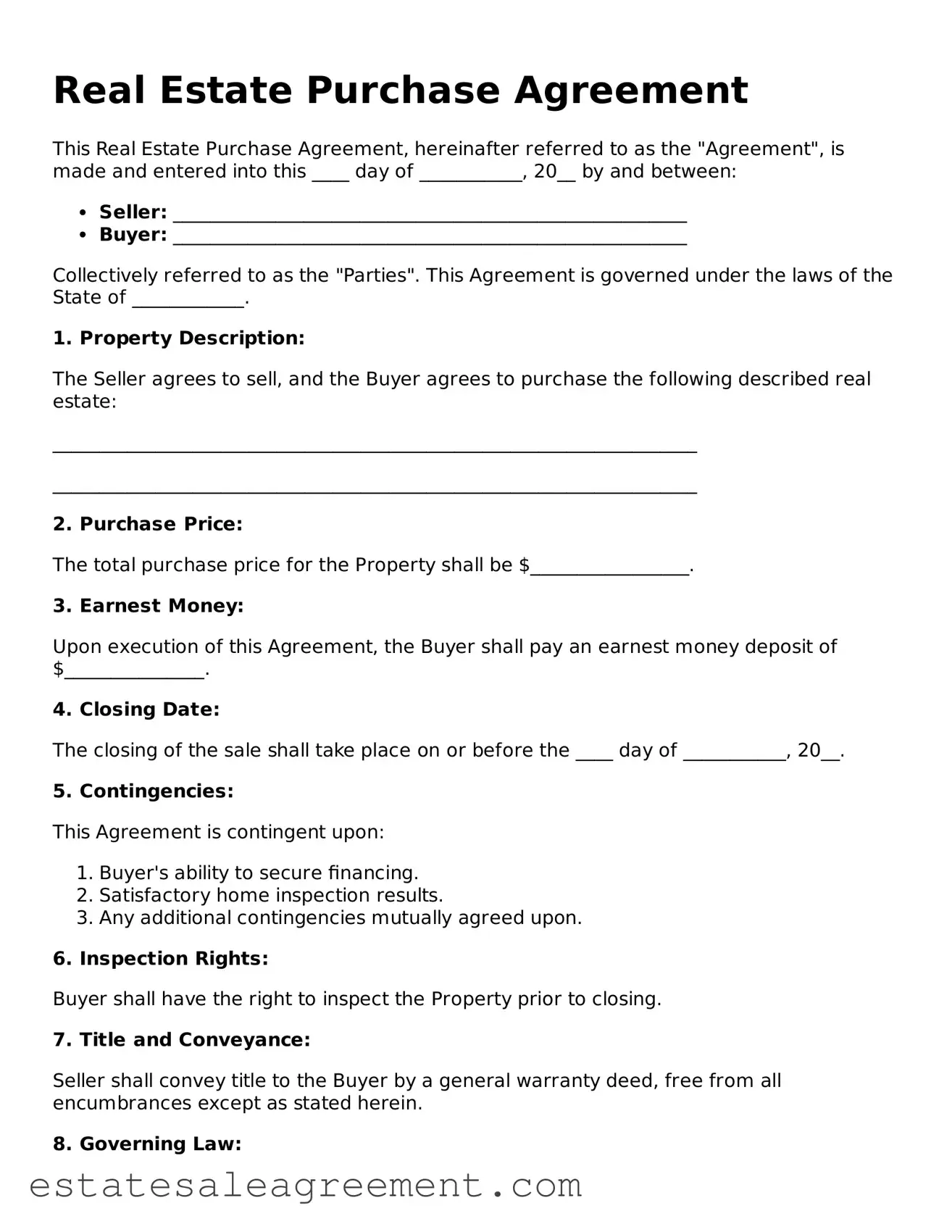Real Estate Purchase Agreement
This Real Estate Purchase Agreement, hereinafter referred to as the "Agreement", is made and entered into this ____ day of ___________, 20__ by and between:
- Seller: _______________________________________________________
- Buyer: _______________________________________________________
Collectively referred to as the "Parties". This Agreement is governed under the laws of the State of ____________.
1. Property Description:
The Seller agrees to sell, and the Buyer agrees to purchase the following described real estate:
_____________________________________________________________________
_____________________________________________________________________
2. Purchase Price:
The total purchase price for the Property shall be $_________________.
3. Earnest Money:
Upon execution of this Agreement, the Buyer shall pay an earnest money deposit of $_______________.
4. Closing Date:
The closing of the sale shall take place on or before the ____ day of ___________, 20__.
5. Contingencies:
This Agreement is contingent upon:
- Buyer's ability to secure financing.
- Satisfactory home inspection results.
- Any additional contingencies mutually agreed upon.
6. Inspection Rights:
Buyer shall have the right to inspect the Property prior to closing.
7. Title and Conveyance:
Seller shall convey title to the Buyer by a general warranty deed, free from all encumbrances except as stated herein.
8. Governing Law:
This Agreement shall be governed by and construed in accordance with the laws of the State of ____________.
9. Additional Provisions:
_____________________________________________________________________
_____________________________________________________________________
10. Signatures:
IN WITNESS WHEREOF, the Parties hereto have executed this Real Estate Purchase Agreement as of the date first above written.
Seller's Signature: ___________________________ Date: ________________
Buyer's Signature: ___________________________ Date: ________________
